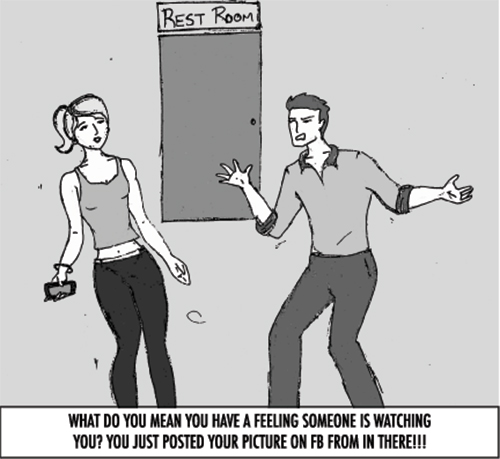Earlier this year, the name Edward Snowden was not likely to gain any attention in casual conversation. Now the name is well known around the world—and even if you don’t remember his name, you remember what he did. Only a few weeks ago, Snowden, an ex-contractor for the National Security Agency, leaked secret information regarding the government surveillance program in the United States to the Associated Press. His decision to release the nature of the surveillance program has been met with a lot of questions and concerns from American citizens.
The government is watching you

Earlier this year, the name Edward Snowden was not likely to gain any attention in casual conversation. Now the name is well known around the world—and even if you don’t remember his name, you remember what he did.
Only a few weeks ago, Snowden, an ex-contractor for the National Security Agency, leaked secret information regarding the government surveillance program in the United States to the Associated Press. His decision to release the nature of the surveillance program has been met with a lot of questions and concerns from American citizens.
However, in the technology-rich world we live in, the notion of government scrutiny should not come as a shock. The complexity of the technology that we use on a daily basis makes using this type of surveillance a piece of cake.
If your phone can track the locations of your friends or keep a record of all your past text messages and phone calls, then you have to expect that some of your personal information is floating around somewhere in the digital cloud.
But on the other hand, Snowden claims that the extent of the data collected by the U.S. government is far greater than the public knows and could point to dangerous and potentially illegal activities performed by those involved. The unclear extent to which the government is monitoring our technology and personal lives is unnerving.
The uncertainty clouding this issue has left many Americans unsure of how to react to the knowledge of these programs. People are very upset by the idea that their government may possess a vast collection of information about them. It is an invasion of their privacy as well as an infringement of the rights and freedoms that we should have as American citizens.
But, regardless of your personal ideas about privacy or the ramifications of Snowden’s actions, the newfound knowledge of this program is much bigger than the United States. The details Snowden made public are affecting people all around the world.
The surveillance programs funded by the U.S. government have the power to collect information about people—even people who are not currently living in the United States. American-based companies such as Facebook, Google, Apple and countless others are believed to be involved in these projects, but statements released by the companies suggest that even they were unaware of the reach of the initiative. Many countries who consider themselves allied with the United States were never informed of the existence of such programs.
Many European countries are uncomfortable with the idea of mass surveillance. It is nearly impossible to know if the data collection adheres to the laws of these different countries, or if those collecting the data are even following the laws of the United States.
The United Kingdom, for one, is beginning to worry about surveillance programs potentially being used by their own government. While the U.K. government cannot monitor its own citizens without ministerial approval, the widespread use of the Internet (with many website headquarters located in the United States) suggests the prospect of loopholes in their surveillance laws. What kinds of information are being collected from people living in the United Kingdom?
Germany is also very disturbed by the level of secrecy employed by the U.S. government. As a country that struggled with their own national surveillance under the Stasi—the secret police—many Germans view the U.S.’s enterprise with disapproval.
The responses and actions of the NSA are beginning to throw into question the authority of governments around the world. Is the kind of mass surveillance being used by the U.S. government truly for the safety of its citizens, or rather to deceitfully infringe upon the rights of Americans?
And should there be limitations on the authority of any government? Unfortunately, there is no simple answer to these questions, and this is an issue that calls for further debate.
With the widespread use of technology and changing perceptions of privacy and confidentiality, this is not an issue that will slide by. The actions of Edward Snowden will be remembered for a long time to come.






